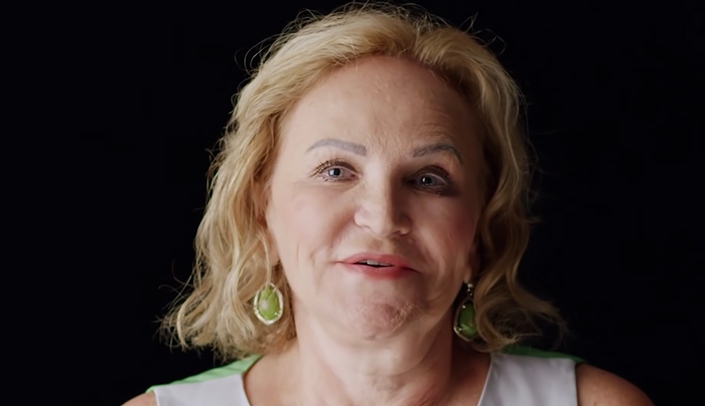When physician and author Alla Shapiro, MD, PhD, first began planning to come to Nebraska almost a year ago to talk about her experiences as a first physician responder following the worst nuclear disaster in history — the explosion at the Chernobyl Nuclear Power Plant in Ukraine in 1986 — she was planning a look back.
Then the Russian invasion of Ukraine began. And her approach shifted.
“The entire world is watching and trying to help to resolve this situation. That’s why I’ll be focusing on both — what happened before and how the current war is making this situation more dangerous,” Dr. Shapiro said.
Dr. Shapiro will speak Thursday, May 12 from 7-8 p.m. at the Strauss Performing Arts Center at the University of Nebraska at Omaha on "History Repeats: Revisiting Chernobyl." The author of "Doctor on Call: Chernobyl Responder, Jewish Refugee, Radiation Expert," Dr. Shapiro will share her experiences, what she learned and how it has shaped her life.
For example: The first response teams to the most radiation-contaminated areas in Ukraine went in with little knowledge of what they’d be facing.
“We were absolutely not prepared,” she said. “We were not given any information. Nobody knew where we were going, no protective gear was distributed.”
But for all the danger of radiation, Dr. Shapiro said that the main lasting impact from Chernobyl for many was psychological trauma, and she expects similar challenges after the Russians occupied the site earlier this year. The psychological impact also will be pronounced in people who fled Ukraine due to ongoing war.
“We will see, unfortunately, very similar (psychological damage); even worse, from this war combined with what happened at Chernobyl until Russian troops left it. They just crossed the territory, the tanks crossed the territory … and they lifted the soil, which is highly contaminated. Next step, Russian troops were digging trenches in the most contaminated area on the planet, this infamous Red Forest area, which also brought the level of radiation up.”
But Dr. Shapiro also stressed that her message is that there are lessons to be learned, not only from Chernobyl but other disasters, and that preparedness is the key to effective response and saving lives.
“All disasters have things in common,” Dr. Shapiro said. “We cannot forget and dismiss our knowledge from COVID, for example – we learn more, and we apply what we learn to any other disasters. There is a term that now is accepted by almost everybody who is working in the area, so-called ‘disaster amnesia,’ meaning people try to forget the disaster, but this is not the right thing to do.”
Raising awareness and knowledge lowers fear and increases preparation, she said – one of the reasons she’s coming to Omaha to speak.
UNMC Chancellor Jeffrey P. Gold, MD, will give a brief welcome at Dr. Shapiro’s event, followed by remarks and an introduction by Ken Bayles, PhD, associate vice chancellor for basic science research at UNMC. Following her presentation, Dr. Bayles and David Berkowitz, PhD, Willa Cather Professor in the University of Nebraska-Lincoln Department of Chemistry, will share how the University of Nebraska is positioning itself to be at the forefront of pharmaceutical research on drugs that help prevent the damaging effects of ionizing radiation.
This event requires no registration but is first come, first served.

Will this be recorded and/or available virtually?
The event will not be livestreamed. It will be recorded for the University of Nebraska Foundation.
I was under the impression that it would be available on line. Disappointing.